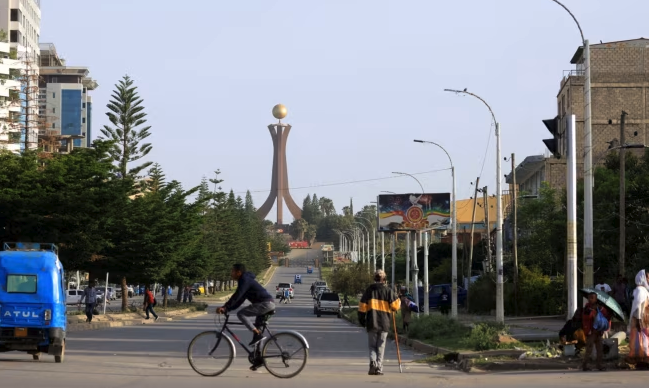Ethiopia is formulating a new law that will allow foreigners to own houses, land and enter the real estate market. This represents a significant policy shift in Ethiopia to attract foreign investment and address the country's long - standing housing shortage. Land reform in any country can bring about huge changes. For example, in 1949, China carried out land reform, distributing the land of the landlord class to farmers. Subsequently, farmers pooled their land into the people's commune, completing the transformation of land from private ownership to public ownership. Since then, the land has never returned to the hands of the people, and millions of people were eliminated just because they owned land.

Yesterday morning, the Ethiopian government held a ministerial meeting to review and pass the draft law decision. Government officials participating in the meeting emphasized that this is an important part of attracting foreign capital into Ethiopia. Allowing foreigners to own real estate will stimulate the local real estate market, create job opportunities for Ethiopians, and help balance the widening gap between housing supply and demand. On the one hand, introducing foreign capital for real - estate development will not increase Ethiopia's own financial burden. On the other hand, the open development of the real estate sector will further stimulate economic development. Ethiopia is trying, as other countries have experienced before, to boost the economy through the "cement economy", which is one of the commonly used means in economic reforms.
Early last year, Prime Minister Abiy expressed his intention to allow foreigners to own real estate in a public speech. In November 2024, the Ethiopian Parliament prepared for this law, allowing foreign investment to participate in real - estate development projects. Once this law is promulgated, it will completely change Ethiopia's investment landscape, making it more attractive to international real - estate developers and private investors. The law is also in line with the Ethiopian government's broader reform agenda aimed at modernizing the economy and opening up key sectors to foreign investment. Last year, Ethiopia signed an agreement with the World Bank, opening up the exchange - rate market and other fields in exchange for World Bank loans to solve the government's financial difficulties.
The Ethiopian government is facing problems such as insufficient revenue, high spending pressure, a high deficit, a heavy debt burden, and insufficient foreign - exchange reserves. The financial situation is rather severe. The Ethiopian government must now find ways to increase revenue in many aspects. Multiple pieces of information show the government's efforts in this regard, including the ongoing tax - collection reform and the increasing number of small and medium - sized enterprises being fined or having their business licenses revoked due to various mistakes.
Ethiopia's fiscal year starts in July each year. In the 2023/2024 fiscal year, the government's fiscal deficit was 212.3 billion birr, an increase of 76.8% compared with the previous fiscal year, which was covered by domestic and foreign borrowings. According to the "Belt and Road" Infrastructure Development Index Report, in 2024, Ethiopia's fiscal balance accounted for - 4.4% of GDP, and it needs to borrow to maintain operations.
According to public data in March last year, Ethiopia's external debt balance was 28.4 billion US dollars, accounting for 17.4% of GDP. A large amount of external debt needs to be repaid with foreign exchange. However, Ethiopia's foreign - exchange reserves have always been at a low level and are difficult to meet the country's foreign - trade and economic - development needs. At the worst time, in September 2023, Ethiopia's foreign - exchange reserves dropped to less than 1 billion US dollars, only enough to cover less than two weeks of imports. The situation has only improved recently due to changes in the debt structure, some debt forgiveness by relevant creditor countries, the arrival of the first - batch of World Bank loans, and an increase in foreign - exchange earnings. Currently, the ministerial meeting has submitted the draft to the parliament, and it is expected that further review is needed before it can be officially promulgated.



